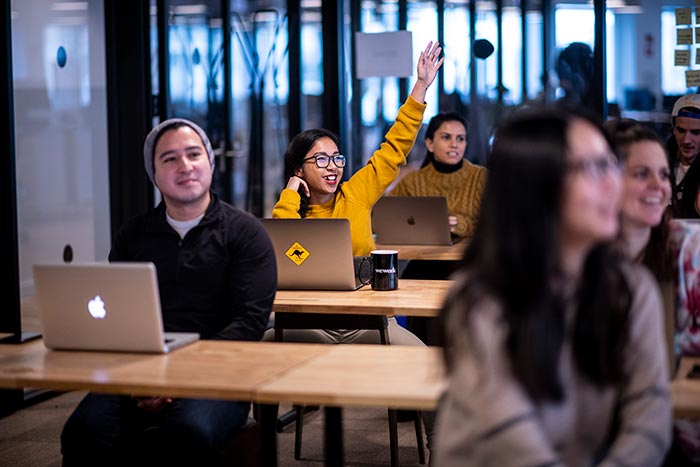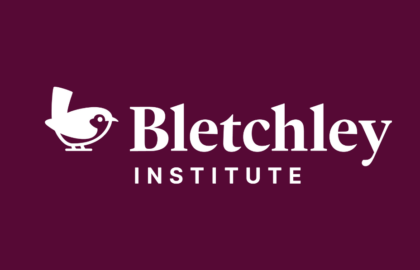What Are Bootcamps Looking for in a Student?

Here’s what bootcamp specifically look for in students during the admissions process.
We often get the question: “What are bootcamps looking for in a students?” Whether you’re actively applying to bootcamps, know a friend who is, or just thinking about making a career switch, we hope this helps you take your next step toward the life and career you want.
The admissions team at Flatiron School has to make a lot of hard decisions about which people to select for our courses. People put a lot of faith in us to make a huge difference in their lives, and that’s not a decision we take lightly. We want to admit people who can get through the course, work well with others, and get enough out of the experience to come away with the skills necessary to build a new career and a new life.

There’s a lot of demand for the technical training that tech bootcamps offer. At Flatiron School, whether it’s our online or on-campus Software Engineering, Data Science, or Cybersecurity courses, we believe in accepting those who demonstrate the potential contributions, aptitude, passion and grit we know will make them successful. Once a student is admitted to Flatiron School, we do everything in our power to make sure that student is successful.
Here’s what we specifically look for in students during the admissions process.
Cultural Fit
Whether you’re interested in our online or on-campus Software Engineering, Cybersecurity or Data Science course, creating things will be at the core: an application, a model, a beautiful design or a framework. Therefore, we work hard to bring people together that can boost the creativity of the entire group, whether they’re learning online or in a classroom setting.
As such, a big goal of the admissions process is to create a student body that’s purposefully diverse. While this certainly means diversity in terms of race, ethnicity, and gender (we work closely with multiple organizations to include underrepresented groups and have scholarships to that end), we go out of our way to seek diversity of backgrounds, experiences, and perspectives.
We like to bring together amazing people, that normally would not have found each other. These have included venture capitalists, entrepreneurs, professional athletes, chemists, pro-poker players, and literal rocket scientists.
Our alumni each have their own incredible journeys to their new careers. Whether you’re a lawyer from Sydney, a Las Vegas bartender, a professional basketball player, or a copywriter, you can learn how to code or learn how to become a data scientist, designer, or cybersecurity professional.
Aptitude
Our courses are intense, so we accept applicants that show the intellectual stamina they’ll need in order to pick up material and get through it. However, there’s more to it than that.
For example, there’s a misconception that programmers are employed to be quantitatively minded factory workers who churn out code. It turns out, that it’s less assembly line work than it is art.
I once asked Yoav Shapira, former VP of Engineering at HubSpot, what he thought HubSpot’s programmers would be doing if they were born 100 years ago. He said. “I really think they would be musicians.” Like being a musician, being a programmer has a lot to do with composition and synthesis — creating fully realized code in a common language of moving parts and patterns. It’s a mode of expression that requires people to think about problems in highly structured ways. So we keep an eye out for creative people who have already proved they can think this way.
Passion
We want to know you are passionate about learning to code, becoming a data scientist of data analyst, or about cybersecurity. Our courses are not just a means to an end. They’re more than just a way to get a cool job or start a tech startup. While those are perfectly good reasons for learning this, we’re looking for people who see this as a craft to which they want to devote their careers.
This is actually one of the hardest things for us to assess in the admissions process. Usually we look for people who’ve at least started learning on their own, like this wonderful alum. There are tons of free resources to get you started, including our free courses: Coding Bootcamp Prep, Data Science Bootcamp Prep, and Hacking 101. If you haven’t tried to learn to code, explored data science skills, or attempted hacking, how can you know whether or not you really want to change your profession? Try free classes and resources first, so that you’re well-equipped to choose the program that’s right for you. You don’t have to be an expert, but you should at least know you love it before applying.
At the very least, we look for people who’ve demonstrated the ability to be passionate about something. Do you love to cook? Are you a Scrabble champion? Do you blog prolifically or volunteer often? Let us know in your application and admissions interview.
At Flatiron, all students work on a final “capstone project” that will help start the job search after graduating. We look for the type of person that doesn’t want to work on a project using what they know, rather, we look for someone who wants to create something that will force them to learn something new. Be intellectually curious and genuinely excited about what you’re trying to learn, whether it’s code, data science, design, or cybersecurity.
Grit
Grit is passion and perseverance for long-term goals, and it’s a predictor of success that transcends both talent and the ability to learn faster than others.
Today, it’s easier than ever to learn coding, data science, design, or cybersecurity skills, but it can still be an incredibly frustrating, arduous process, whether you’re in a program or teaching yourself. It’s hard, and we want our students to be successful, not just early in their careers, but 20 years down the line because we gave them the skills to continue learning. It takes a lot of grit to do that.
The admissions process definitely isn’t arbitrary, but we do have to make tough choices. So it comes down to admitting the people we think will create amazing things together rather than simply outstanding individuals. If you’re demonstrably smart, kind, totally excited about learning, and think really hard about how to best express this in your application, you’ll likely stand out.
Interested in seeing if one of our programs is for you? You can get started for free with our free courses.
- Coding Bootcamp Prep: Build with real world tools and developing environments to give you a taste of life as a programmer.
- Data Science Bootcamp Prep: Take your first steps into data science by learning Python and Machine Learning fundamentals!
- Hacking 101 – Intro to Cybersecurity: Get your first look at virtualization and work through a hands-on lab for an introductory look into cybersecurity skills.
If you’re thinking about a new career but are wondering how to fund your bootcamp, read “How to Pay for a Coding Bootcamp.”
Learn more about your potential path to a new career with our co-founder, Avi Flombaum.
Disclaimer: The information in this blog is current as of February 24, 2018. Current policies, offerings, procedures, and programs may differ.



